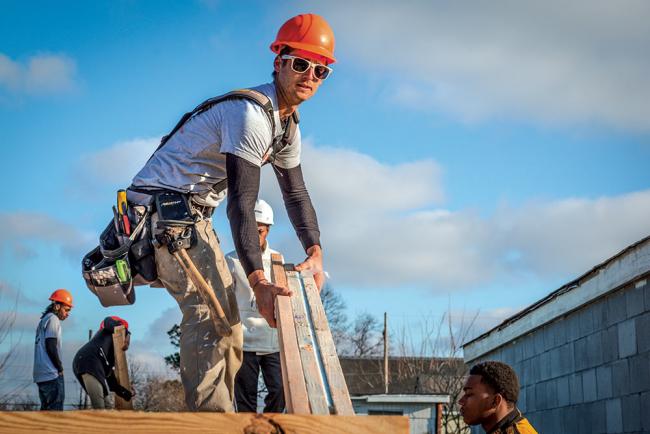Those experiences, along with a stint with Teach For America in Colorado, came together in 2015 when Frumin founded unCommon Construction, a nonprofit organization that teaches New Orleans high school students how to build homes and, at the same time, work and leadership skills.
His jobs helped him find a deeper understanding of the problems in communities and also potential solutions, he said.
“What I loved about Habitat was teaching people,” Frumin said. “It was taking people from different backgrounds and experiences who didn’t know how to do the construction of a house and bringing us all together around that shared experience.
“Someone asked me what I would do if I could do anything for a job,” Frumin said. “It hit me like a lightning bolt — I said without hesitation, ‘I’d build houses with high school students and use the profits to pay for scholarships for the kids who build those houses.”
Today the program employs about 20 students a semester, and the students spend their Saturdays constructing a house from the foundation to the trusses. Students earn $8 an hour their first semester, and raises come with experience. The high schoolers also earn equity award scholarships, which can be used for a variety of education-related expenses after graduation.
unCommon Construction has employed more than 100 students and distributed more than $100,000 in pay and scholarships since the program began. The organization recently began construction in its 10th semester.
“We think a lot about the belief gap, which is the gap between what young people are capable of and what others believe they can achieve,” Frumin said. “When that’s internalized by a young person, it can limit their aspirations. We try to deconstruct a lot of those things with a ‘wow’ factor of what you can accomplish in a day on a build site.”































































